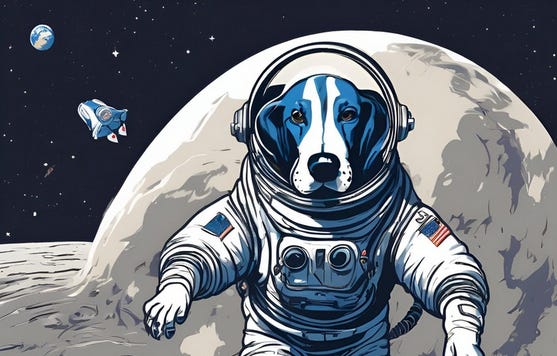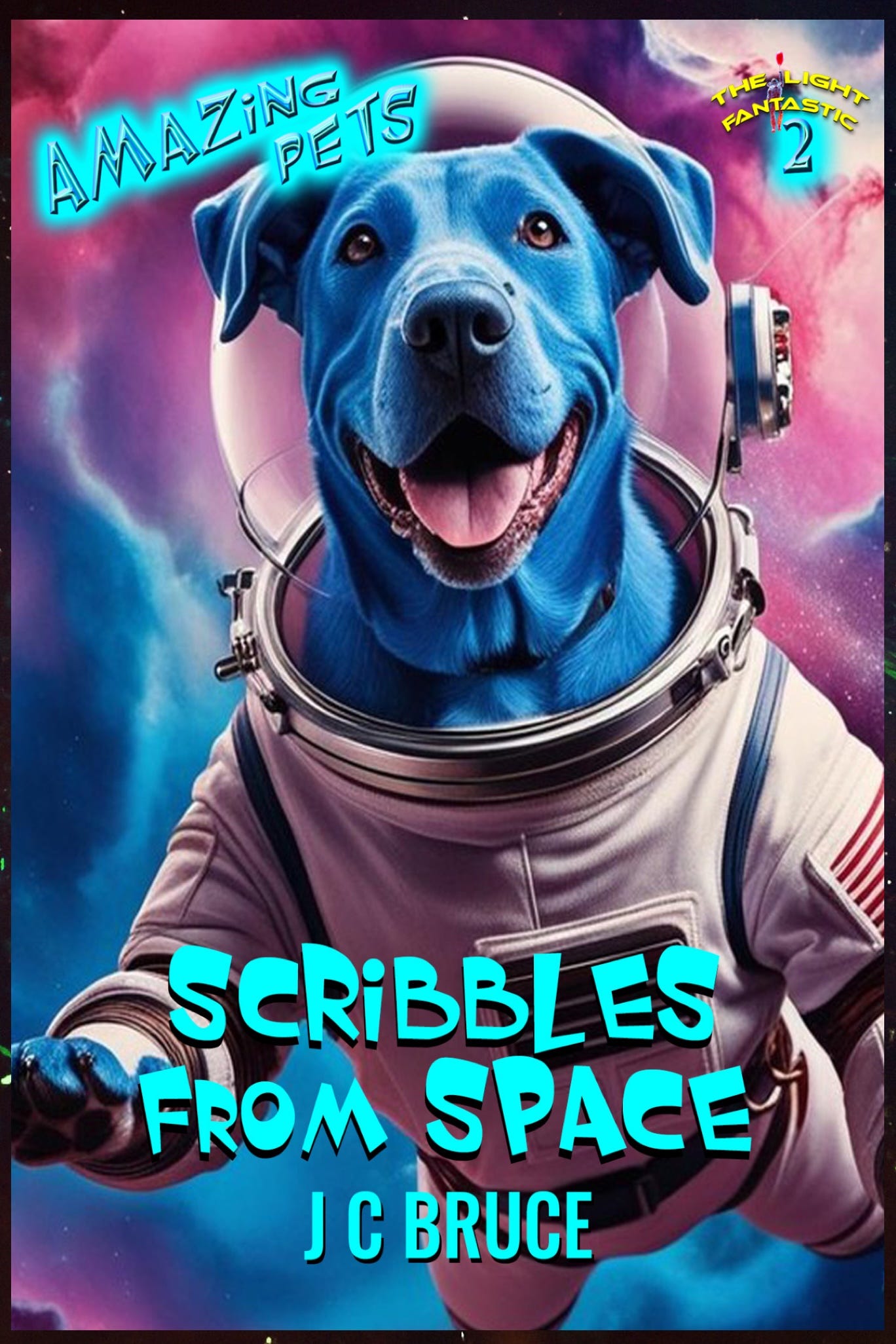Why I Decided to Write 'Scribbles From Space'
It began as an experiment writing episodes at a time online
Since the publication of my latest novel, Strange Timing, I’d been fielding questions from fans of Alexander Strange’s adventures about when the next book would arrive.
I actually wrote Strange Timing in such a way that it could serve as a conclusion to the six-part series should I decide to move on to other projects. I wanted to leave the door open to further installments, but I’ve had other kinds of stories I want to tell.
I had this idea:
What if a visitor from another world were to arrive on Earth on a scouting mission of sorts? What would this extraterrestrial have to say about the state of affairs on the third rock from the Sun, looking at us from a — literally — detached and distant perspective?
Which is how I started developing the idea of a series of essays I would call Letters from Earth. And as I always do before plowing ahead with possible titles, I checked in with Google to see if anyone else had thought of that idea.
Uh, yeah. Somebody named Mark Twain and a series of short stories published posthumously entitled nearly the same thing: Letters from the Earth. They comprise a scathing critique of culture and religion told from the perspective of Satan who visits Earth and is appalled by what he discovers.
I’ve always considered myself a fan of Twain’s work (and as an aside, I commend the retelling of The Adventures of Huckleberry Finn in the Pulitzer-nominated novel James by Percival Everett). But I had never heard of this collection of Twain’s stories. Turns out, Twain’s discomfort with Christianity — indeed his apparent disdain for it — was too hot to handle in his lifetime.
And while my idea for a series of essays wasn’t designed to target religion, per se, the approach was similar and I certainly didn’t want appear to be appropriating Twain’s title.
So, I spent some time with my Thesaurus, looking for words similar to “letters” — which are multitudinous — and was struck by one that tickled my fancy:
Scribbles.
Which sounded like a clever name for a journalist’s pet, perhaps informed by my calico cat Scoop who has long since ventured off to the Great Litter Box in the Sky.
Oh, I wondered, what if the visitor from another world was, indeed, a pet? Or disguised as one? One idea snowballed into another, which is how the basic concept for Scribbles From Space was born.
The blue dog who would end up being the visitor from outer space, how he got here, his back story, all that, well, that was an ongoing process.
As I mentioned in my June Strange Files Newsletter, I’m a “pantser,” a writer who attacks the blank page by the seat of his pants. I sit down at the keyboard and engage in one of the most pleasant forms of insanity — I let the story flow from my subconscious with no idea where and how it will play out.
Every writing session is a surprise. I never know what my characters will say or do next. It is much more fun to write this way than with an outline, the dull routine of “plotters.” Or so I imagine. I’ll never know. I’d rather crawl through broken glass than endure the tedium of trying to preconceive all the details of a story. Really, that’s not my job. It’s my characters’ roles to play. I am merely their scribe.
Ordinarily, I give myself ninety days to write the first draft of a nbovel — one thousand words a day for three months. Then, because I have eschewed that dreadful outline, I spend weeks and months rewriting and reorganizing, trying to ensure the tale holds together, that it has the necessary coherency to be an actual story.
It’s a task done mostly in solitude, although I am blessed with a handful of first readers, starting with (in chronological order) my wife Sandy, my daughter Kacey, and my son Logan, who keep me more or less on track. But, still, the vast majority of work takes place in isolation.
But not this story.
I decided to write Scribbles From Space in real time, posting first-draft episodes on a special Substack page I created as they decamped the keyboard. But this time, no ninety-day deadline. No set schedule.
I have to confess: Sharing raw copy is a little intimidating. It’s a high-wire act. And nothing I’ve done before. I had no idea whether it would work. Or not.
While I was in the midst of this process, I was contacted by an author and fellow member of the Florida Writers Association who asked if I would like to contribute a short story to a science fiction anthology. My latest novel, Strange Timing, had just won a gold medal in the organization’s annual writing competition in the science fiction category (it also won Book of the Year). That’s how I came to his attention.
Which is how this story in development took a ninety-degree turn from a novel in progress to a novella near completion.
As this is written, the anthology has yet to be published, but Scribbles From Space is now out in the world as a small paperback novella, Ebook and audiobook.
A big shout-out to everyone who contributed their ideas, criticisms and suggestions during the experimental online writing process.
You are the best!
J.C. Bruce is a journalist and author of The Strange Files series of mysterious adventures. He holds dual citizenship in the United States of America and Florida. He was recently awarded a doctorate degree from the Lightgate Institute of Extranormal Studies, a Miami institution he totally made up for his award-winning novel Strange Timing.






